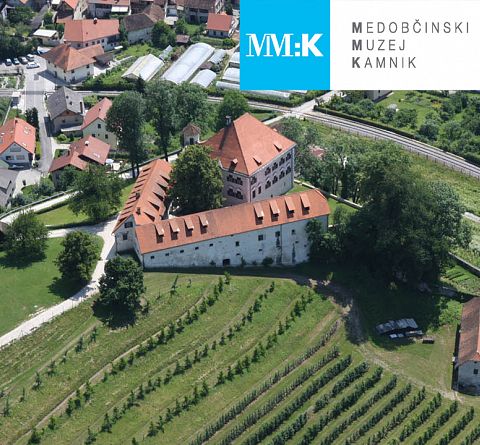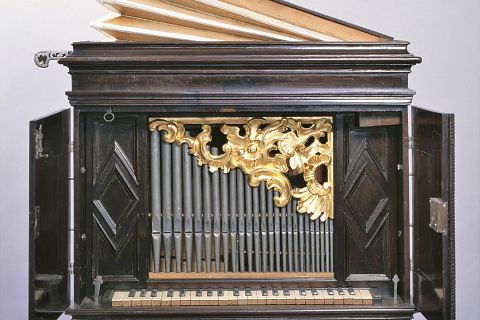Orgel Positive, Marcus Göbl and Joannes G. Eisl, 1743
Orgel Positive, Marcus Göbl and Joannes G. Eisl, 1743, bone, pear wood, walnut wood, spruce wood, tin, gilt
The portable organ was produced by Marcus Göbl and Joannes G. Eisl in Ljubljana and represents one of the smallest organ instruments in Slovenia. The signatures of the masters on the nozzle and bell cover prove the year of production in 1743.
The organs have three registers and 45 keys, of which large are covered with bone, and small with walnut wood. The flutes are wooden and made of tin alloy. The organ cupboard itself is made of pear wood, on the front side of the flutes is richly carved and gilded baroque decorations. On the outer sides, the cabinet has two handles intended for carrying.
According to preserved data, the organ originated from the castle Ebenfeld in Groblje near Domzale. In 1964, they came to museum with a purchase from Sadnikar’s collection. In the past, organ positive was often used as a home instrument for more affluent layers, later replaced by a piano.




